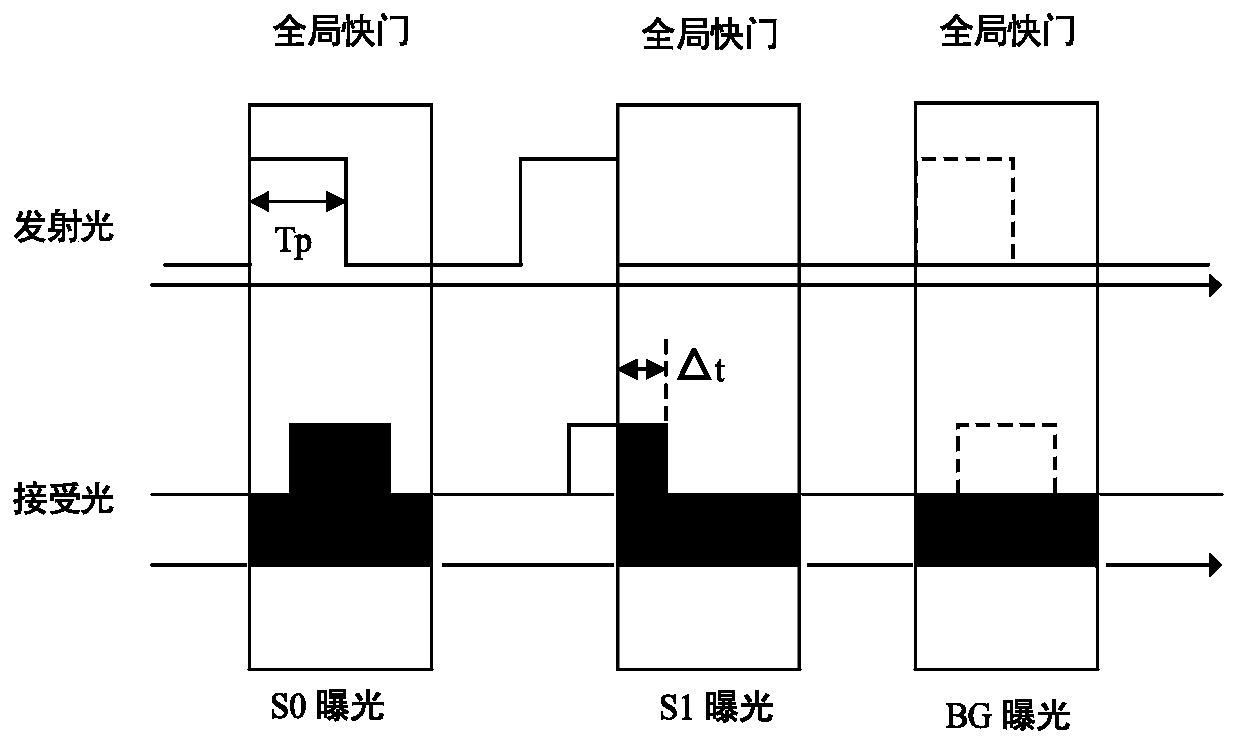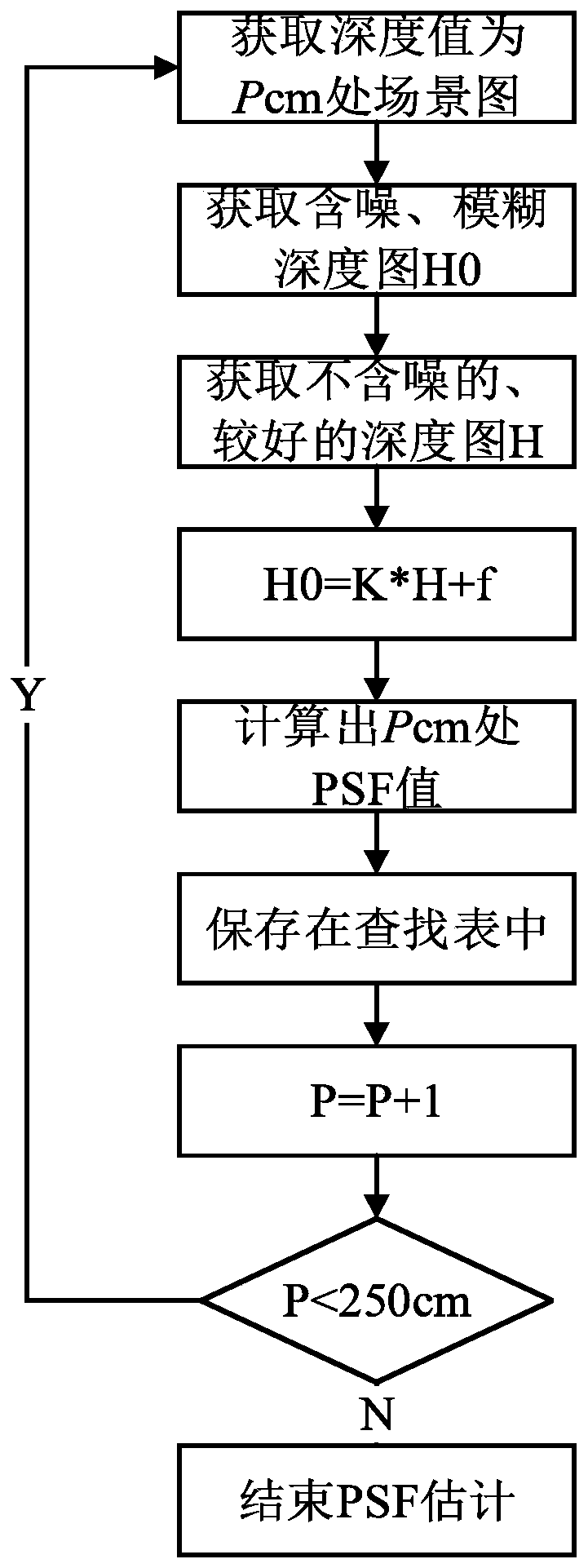Method for denoising based on pulse type ToF depth image
A deep image and pulse-type technology, applied in the field of computer vision, can solve problems such as high-frequency random noise, and achieve a good denoising effect
- Summary
- Abstract
- Description
- Claims
- Application Information
AI Technical Summary
Problems solved by technology
Method used
Image
Examples
Embodiment Construction
[0011] The present invention will be described in detail below in conjunction with specific embodiments shown in the accompanying drawings.
[0012] figure 1 It is an overall flow chart of a method for denoising based on pulse-type ToF depth images proposed by the present invention, such as figure 1 shown, including:
[0013] Step 1. Imaging model calculation of pulsed ToF camera
[0014] This step calculates the imaging based on the ranging principle of the pulse-type ToF camera; the calculation formula of the depth value acquired by the depth camera is z=c*Δt / 2, where c is the speed of light, and Δt is the time difference from when the laser sends a signal to when the detector receives the signal. However, the depth camera cannot directly obtain Δt, but has the photon accumulation ΔA obtained by three exposures. The three exposures are S0, S1, and BG respectively. The first exposure S0 is the case of full charge accumulation, that is, the time is the sensor pulse width Tp...
PUM
 Login to View More
Login to View More Abstract
Description
Claims
Application Information
 Login to View More
Login to View More - R&D
- Intellectual Property
- Life Sciences
- Materials
- Tech Scout
- Unparalleled Data Quality
- Higher Quality Content
- 60% Fewer Hallucinations
Browse by: Latest US Patents, China's latest patents, Technical Efficacy Thesaurus, Application Domain, Technology Topic, Popular Technical Reports.
© 2025 PatSnap. All rights reserved.Legal|Privacy policy|Modern Slavery Act Transparency Statement|Sitemap|About US| Contact US: help@patsnap.com



